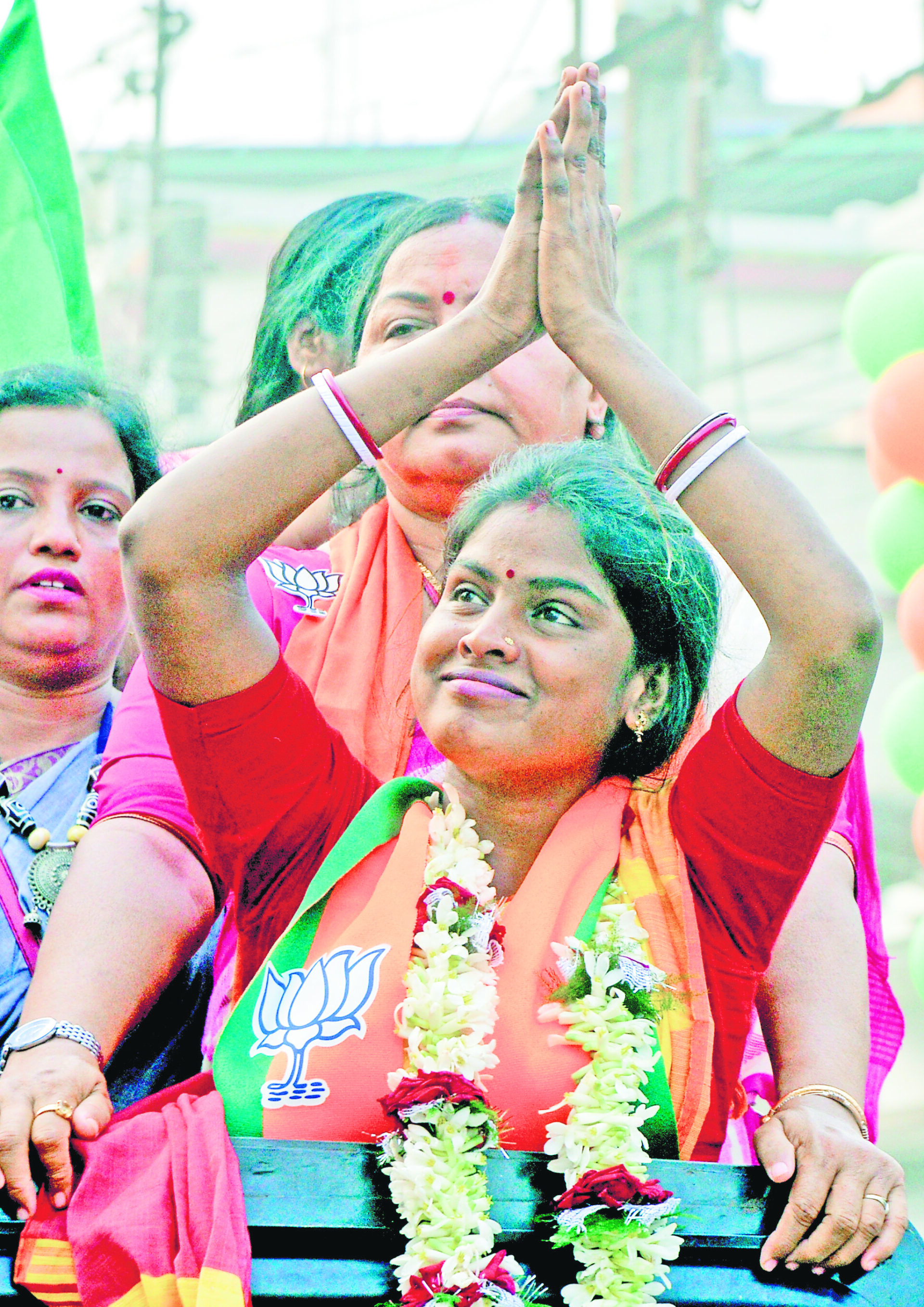Even the champions of subalterns, the Left, felt that by selecting her BJP insulted the constitutional process.
Subaltern studies cover individuals or groups of inferior rank or station due to factors such as race, class, gender, sexual orientation, ethnicity, or religion. The term “subaltern” is borrowed from Italian Marxist Antonio Gramsci, who used it in the context of peasants not integrated into industrial capitalism, remains a powerful lens for understanding events from the perspective of the marginalized, challenging elitist narratives. Seen from this aspect the agitation by the women of West Bengal’s Sandeshkhali truly deserves to be seen minutely by those having interest in subaltern studies.
Sadly, intellectuals espousing subaltern studies who wax eloquent on poverty and injustice in a capitalist society especially arising out of policies of a rightist political establishment under Prime Minister Narendra Modi, are silent on BJP’s choice of Rekha Patra as a candidate for Basirhat Lok Sabha seat. Hailing from a marginalised community whose males work as migrant workers in faraway places like Tamil Nadu, Rekha Patra is exploited by the muscle power of Bengal’s ruling Trinamool Congress in the island. As is the prevailing political rule in the state, any person supporting any political party other than the ruling one, may be harassed, beaten and even killed without any protection or redressal from the law enforcing agencies. Their women may be called to serve the muscle of the ruling party, harassed, exploited and “asked to make sweet dishes” in their dens. Rekha Patra comes from such background.
But when the ability to bear with such torment turns people desperate, all hell breaks loose. This is what happened at Sandeshkhali. The lead muscle of the island, a certain Sk. Shahjahan, a close ally of TMC leader Mamata Banerjee, assumed so much authority that even India’s investigating agency ED officials and their accompanying central forces were beaten badly and driven out of the place when they went to interrogate Shahjahan. That the recklessness had the blessing of the state’s administration was apparent from the manner of handling the case by the state police. Even the Chief Minister herself defended Shahjahan on the floor of the Assembly and gave him a clean chit. Taking out “brooms of protest” against such a state sponsored criminal by the women of Sandeshkhali illustrates the desperation of those exploited.
Rekha Patra was one of such faces. She was brave enough to come on camera, show the signs of atrocities of the local police at her home to visiting TV cameras. She knew well enough that by doing so she could have been even beaten to death, a common enough fate of those who dared to defy the muscle of Sandeshkhali. Her courage emboldened many of her neighbours to come in the open and raise the banner of protest. Even the state’s police chief, then DG Rajiv Kumar came to the island to check the agitation and failed. Rest is history. Despite several efforts of the police persons to block access to the island to visiting organisations like Human Rights Commission and political leaders the women of Sandeshkhali placed the movement of the subaltern on the news map of the nation, radio silence from local intelligentsia notwithstanding.
Protesting women of Sandeshkhali and neighbouring places, which are part of Basirhat Lok Sabha constituency, had paved the way for BJP to fight the state’s ruling TMC in the 2024 national election. The party could have easily chosen a prominent face, as is the custom in politics, to shed tears over the exploited and exploit the opportunity to win votes. All political analysts expected this. Instead BJP chose one subaltern courageous face of protest to represent the party in the Lok Sabha seat—a first such example in the 75-year-long democratic history of the country.
Predictably, the unusual decision of BJP inviting a true subaltern as a candidate for the forthcoming Lok Sabha election brought in criticisms. Even the champions of subalterns, the Left, felt that by selecting an uneducated, poor destitute woman BJP insulted the constitutional process. How would she take part in discussions in the House, if elected? Such seats should go to the educated elites who would eloquently champion the cause of the subaltern. A large section of elitist media too quietly joined them in criticising the BJP candidate. Local poor were instigated to protest Rekha Patra’s candidacy. Reports were out that even BJP “leaders” were unhappy. Knives were out to sabotage the unique political experiment of BJP. The issue is how could a “right wing” business friendly political party dare to experiment with a downtrodden subaltern in the crucial national election.
Realising the need of the hour the master political strategist Prime Minister Narendra Modi called up Rekha Patra, spoke to her and let the audio record go viral. In one shot he boosted the morale of Rekha, who evidently was overwhelmed at the sudden turn of events. He also at the same time doused any sense of rebellion among the seat aspiring BJP leadership—after all in a national election people vote for them as Modi’s candidate. Open support from Modi also exhibited that he had been very much a part of the decision to nominate a subaltern to contest. The viral audio call made Rekha Patra the unique face of 2024 national election—a local poor protester immediately drew national attention. Rekha Patra is a symbol of Narendra Modi’s socio-political experiment—focus
Whether Basirhat will eventually elect its own woman MP or not, Rekha Patra will remind each and every voter in 2024 the political-mafia nexus prevailing in many pockets of India. The subalterns everywhere in the country will look forward to such experiments, which, if proven successful, will create a robust socio-economic-political structure in the world’s largest democracy. Rekha Patra is the face of a critical experiment.
Sugato Hazra is an author and political analyst.

